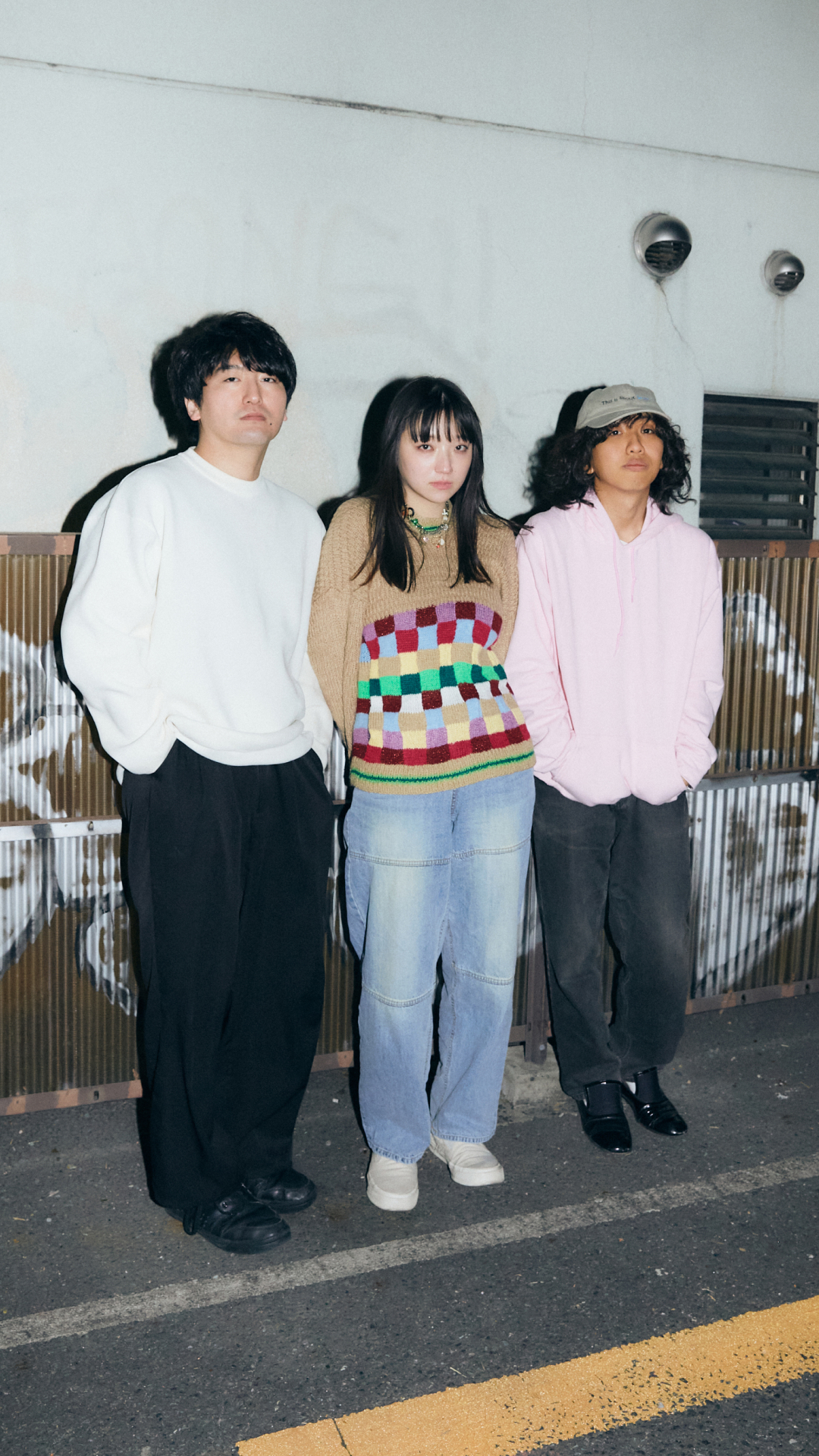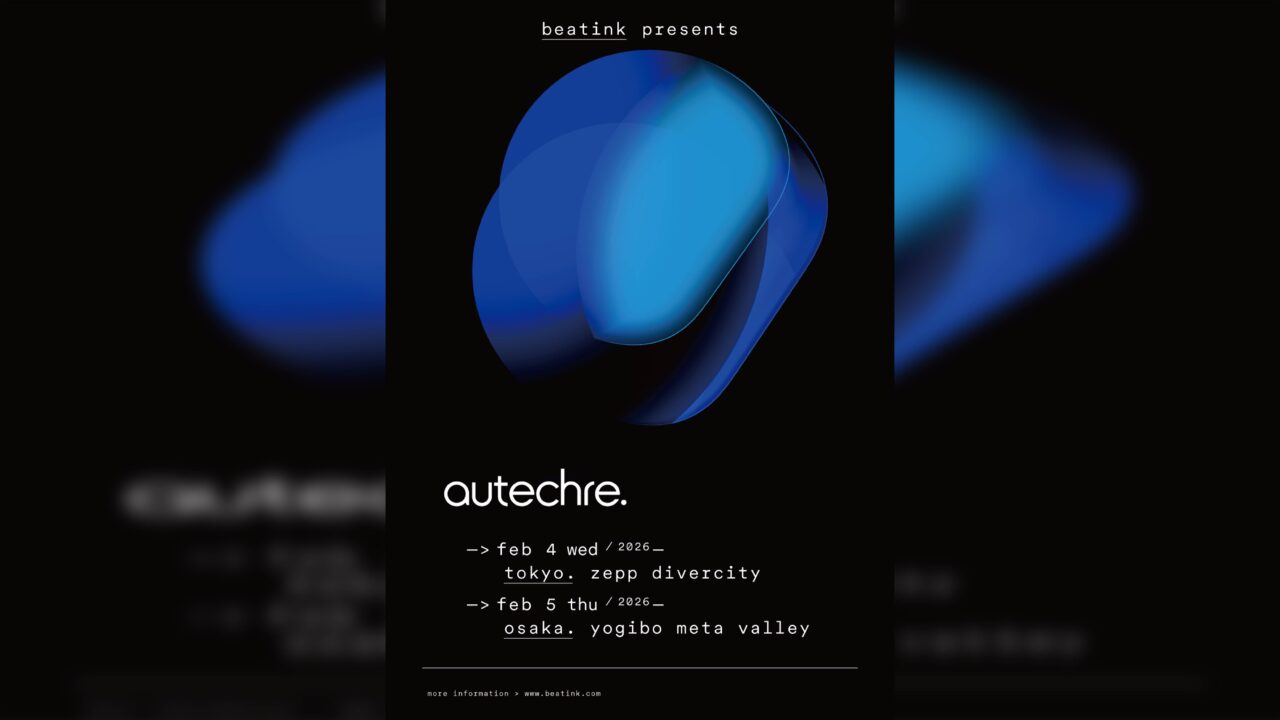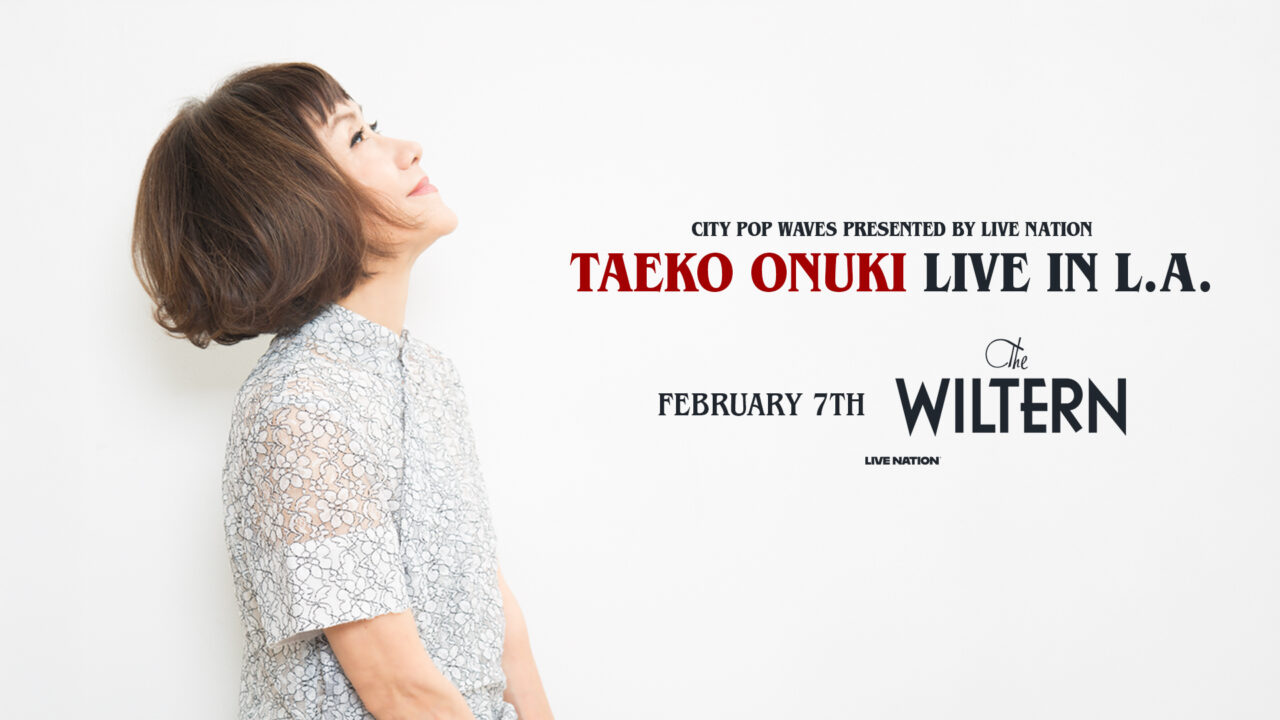In a world where the future is uncertain, the soundtrack to our continuing promises… This is the catchphrase that comes to mind when listening to the new album “合歓る-walls” (Nemuru Walls) by the three-piece band Laura day romance. This 10-song album is the first part of their third full-length album. The idea of dividing a full album into two parts, a title that sounds like a new word, and a story that is told through raw and vivid sounds and words, as if layers of time and emotion are folded over one another. With these, Lola’s attempts to capture something that cannot be defined by definite words in the real world we live in today. What is between you and me. What is between you and someone else.
As discussed in the interview that begins below, they have not yet begun work on the second part of the film at this point. No one knows now how the story will end. No one knows what will happen in the future. We cannot even know what will happen one second into the future. The fact that such uncertainty of reality is packaged in this film is part of what makes “Nemuru Walls” a masterpiece.
The future is unknown. You may not come to the promised place. Still, even at this very moment, somewhere, someone is making a promise to someone else. They are sharing joys, hurting each other in small ways, and slightly forgiving each other. This music is being played for us.
INDEX
Exploring Bonds Beyond Love and Friendship
Your latest release, “Nemuru Walls,” which serves as the first half of your third full-length album, is a remarkable work that seeks to capture aspects of our reality that cannot be expressed through existing words or values. What were your thoughts during the creation process?
Suzuki (Gt): The idea of making a long-form piece came first. When we released our first album, farewell your town, and our second, “roman candles,” people often described them as short story collections. Structuring an album like that—choosing a theme and aligning songs to it—isn’t necessarily difficult. But this time, I wanted to push ourselves to the very edge of what we could achieve. So, we challenged ourselves to create something with a more narrative-driven dynamism—a true long-form work.
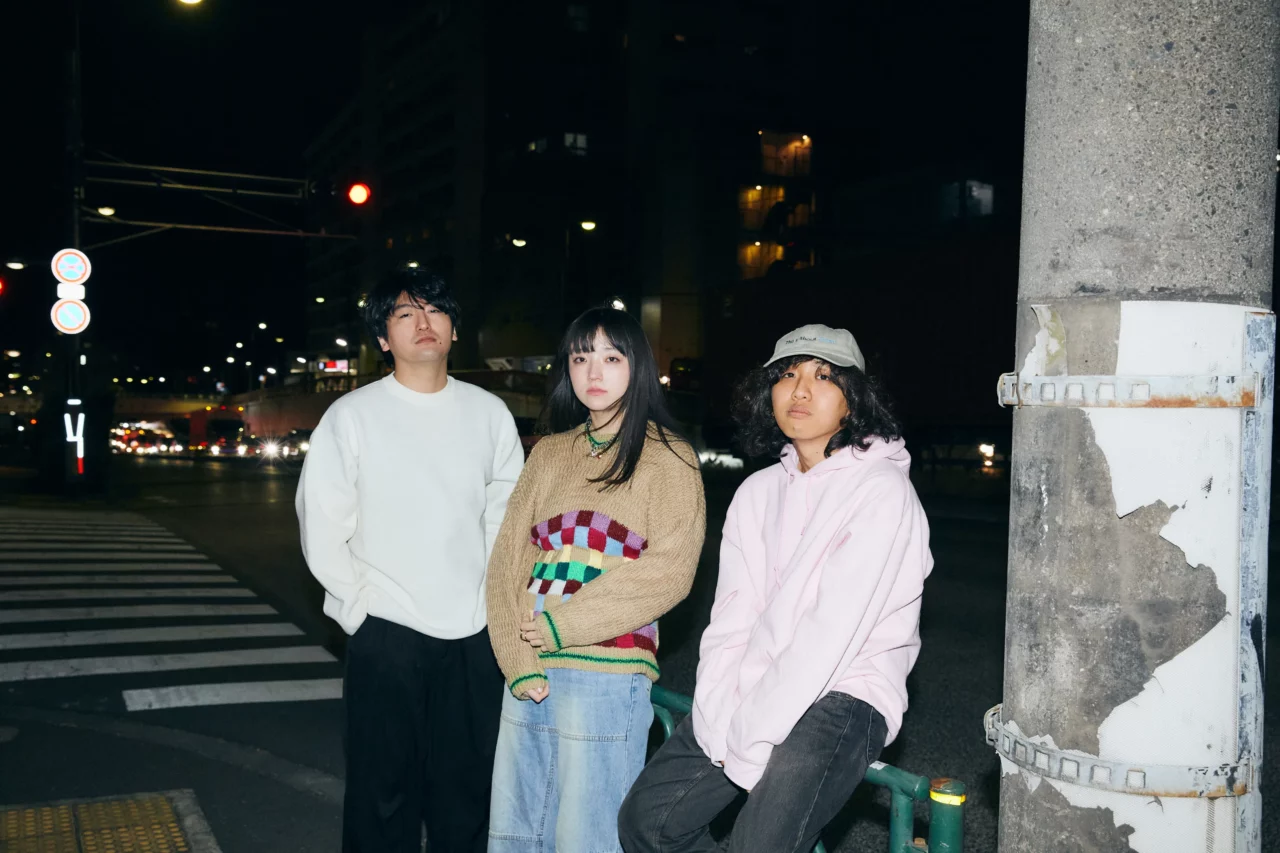
From left: Yuta Isomoto (Dr), Kazuki Inoue (Vo), Jin Suzuki (Gt)
A Japanese band gaining fans among music lovers both in Japan and abroad. Their sound is shaped by Jin Suzuki’s diverse musical compositions, Kazuki Inoue’s evocative vocals, and Yuta Isomoto’s drumming, which balances tight precision with flexibility. Supporting members join in the best possible way to bring their music to life.
With each solo concert, the band has expanded its scale, selling out their Zepp Shinjuku show in November 2024. Looking ahead, they are set to perform at Osaka-jo Ongakudo and Tokyo International Forum Hall C in April 2025.
It’s a long-form work, but rather than a lengthy album, it’s divided into two parts.
Suzuki: Initially, we planned to release a single 20-track album, but we quickly realized that might be a bit too much [laughs], so we adjusted our vision. If I had to sum up the first half’s narrative in a single phrase, it would be “two people drifting apart.” But beyond that, I wanted to create something that moves between different timelines—someone living in the present, their memories, and the past that shaped them. To fully explore that, I felt we needed around 20 songs. Another key point was ensuring that the story truly begins in the present.
The realism of the opening sounds and the first lyric, ‘A delay notice on the Fukutoshin Line,’ immediately establish that the album starts in the present moment.
Suzuki: I really wanted to emphasize that this isn’t just a fantasy. I wanted to place the story directly in listeners’ hands. Even something as simple as a delay notice carries the sense that countless “what-if” stories could emerge from it. I’ve always loved the idea of narratives where you can’t quite tell how things are connected, and I think that element naturally made its way into this album.
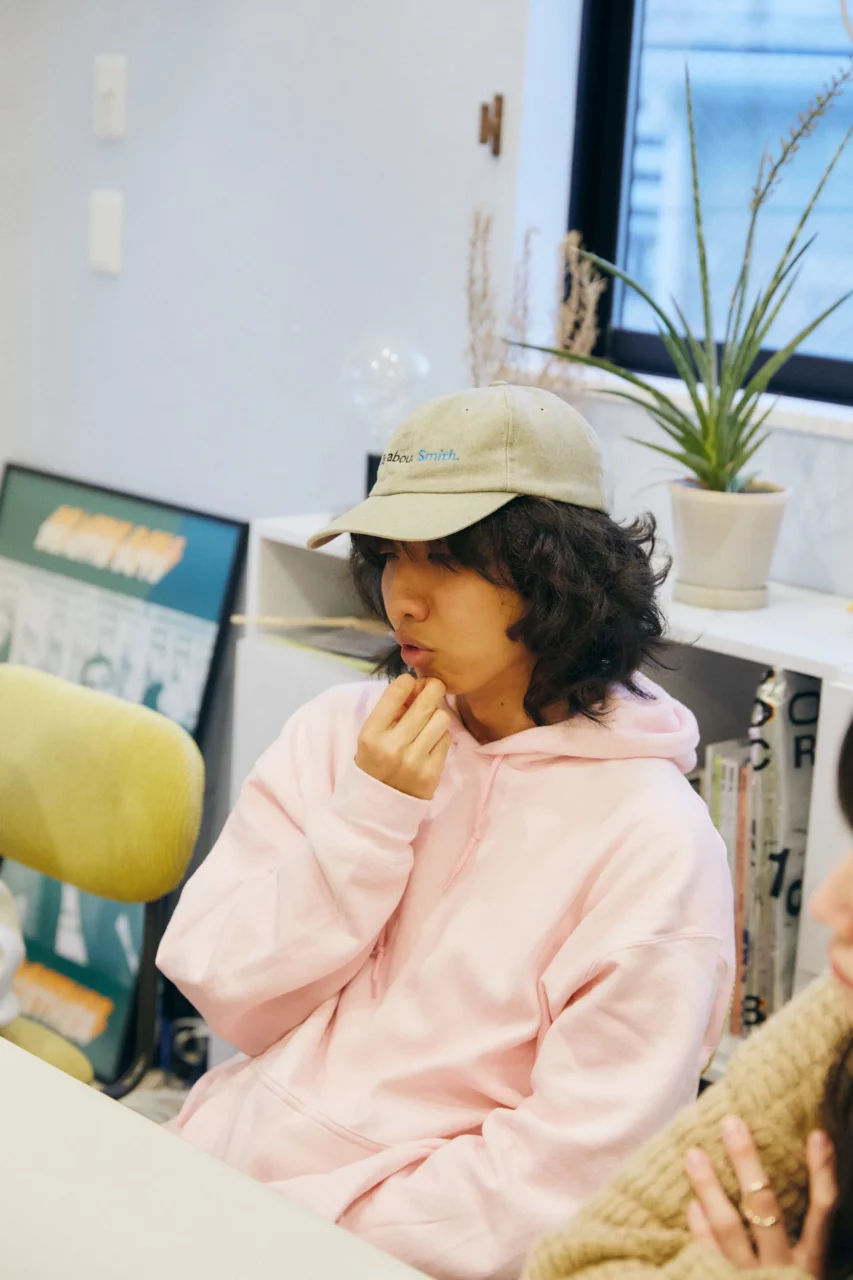
What made you want to explore the theme of “two people drifting apart”?
Suzuki: A big part of it came from Kacchan (Inoue)’s story.
Inoue (Vo): I’ve always considered men to be my romantic preference, but when I look back now, there was this girl in middle school—it was definitely love at first sight. Our relationship never fit neatly into the categories of love or friendship; we’ve just always been together. She’s incredibly important to me, but I don’t see her in a romantic way, and at the same time, we’re closer than just friends. When I told Jin-kun (Suzuki) about it, he was really surprised, like, “That kind of thing happens?” And that’s where it all started, right?
Suzuki: Yeah. More than that, I think it stopped feeling like someone else’s story. It made me realize, this could happen to me too. That shift in perspective really clicked something in my mind. When something feels close to me personally, that’s when I can write with a level of reality that I’m truly satisfied with.
INDEX
Expressing Meaning Through the Unique Phrase “Nemuru Walls”
The sound of this album is incredible. The bold moments hit with impact, while the delicate ones remain beautifully fragile and clear. Instead of following a single, linear flow of time, the music feels like a collection of fragmented moments pieced together—creating a sense of time unfolding through accumulation. That quality resonates deeply with the album’s transcendent storytelling.
Suzuki: The way the sound suddenly grows loud, then fades into near silence, or even includes barely audible elements—that might be a signature of my arrangement style. What I really want to express is the landscape of emotions and memories that come from within.
Inoue, did your approach to singing change in any way for this album?
Inoue: With each release, I feel like singing is becoming more natural for me. This album probably required the fewest takes so far. I’ve always wanted to become a better singer, but that doesn’t mean I’m aiming for technical perfection. More than anything, I just want to be able to sing in a way that truly feels right.
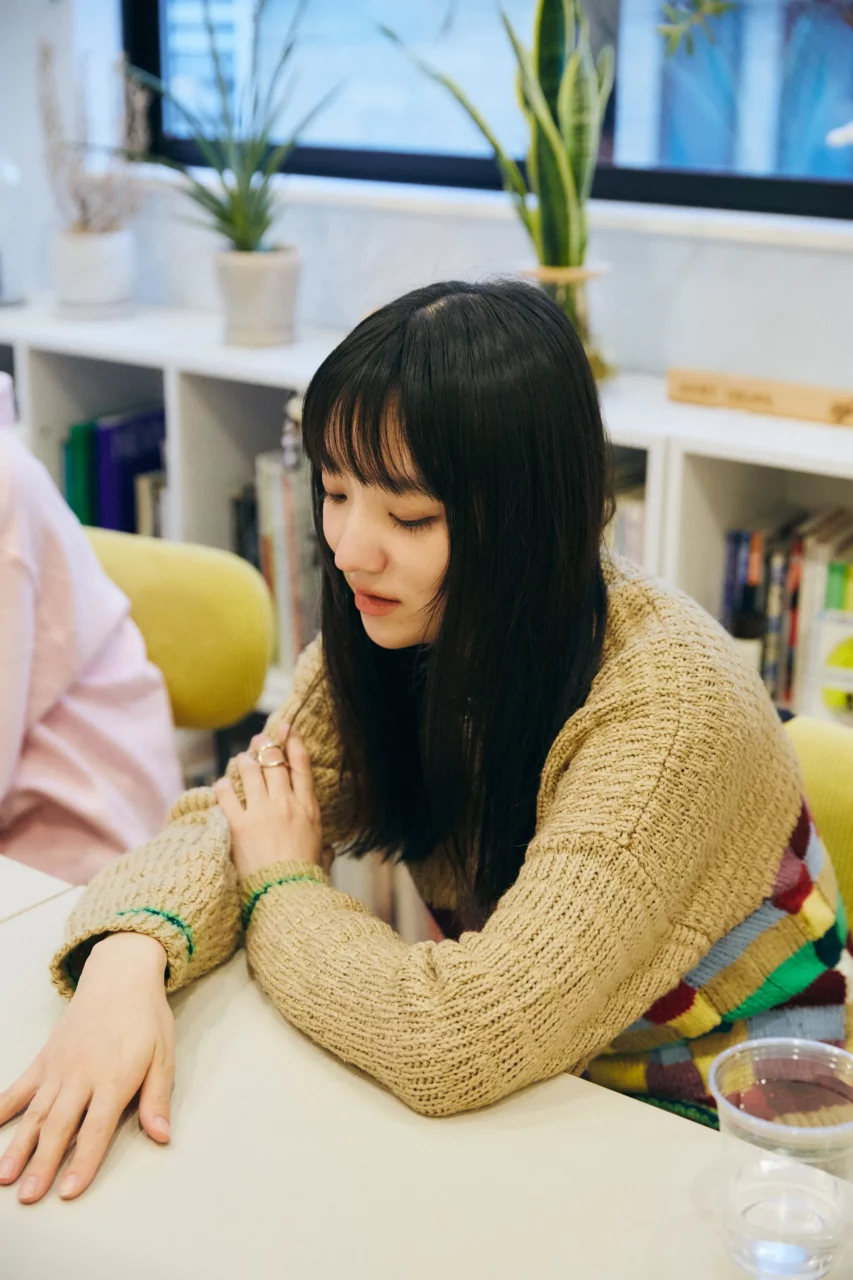
Inoue: In that sense, I think this album contains the best singing I’ve ever done. This time, I made a conscious effort not to overanalyze the lyrics. Of course, I thought about them, but I didn’t want to infuse too much emotion. A vocalist plays a complex role—they’re the protagonist, the narrator, and sometimes even an omniscient presence. I feel that singing with a neutral, almost detached approach allows the emotions to reach the listener more directly. I’ve always admired singers who can do that, and I think it happened naturally for me this time.
The title “Nemuru Walls” combines the phonetic impression of “nemuru” (to sleep) with the meaning and visual complexity of the kanji “Nemu” (meaning joy in togetherness). Meanwhile, “walls” seems to hint at the barriers between people. How did you come up with this title?
Suzuki: At the core of this album is the idea of “what can be shared and what cannot.” I came across the word “nemu” while reading, and its sound felt deeply personal—like “nemuru” (to sleep), which is an inherently solitary act. But when you write it as “Nemuru,” it evokes something entirely different.he word “nemuru,” it feels like something else rises up.
Inoue: It carries the meaning of “the joy of coming together,” right?
Suzuki: Exactly. I’ve always been drawn to a quiet sense of optimism within resignation, and I think that’s what I naturally pursue in my work. The word “Nemuru” felt like it held that same essence.
INDEX
Finding Hope After Letting Go
Why do you pursue positivity within resignation rather than pure optimism or simple surrender?
Suzuki: I see pop music as something that inherently conveys positivity. But there’s a difference between first-layer positivity—where things are simply uplifting—and second-layer positivity, which emerges after experiencing hardships and still choosing to say, “even so…” The latter feels more real to me. The world, human relationships, even our inner selves—they’re not that pure and transparent. I can’t lie to myself, so this kind of expression is what naturally comes out.
That’s why I didn’t want this album to be just pretty words. I wanted to write about the harsh realities too—about how cruel people can be to one another.
Isomoto, you were nodding a lot while listening to that just now.
Isomoto (Dr.): Yeah, because I completely agree with this perspective on life. If I ask myself, “How many things or people in this world can I wholeheartedly call good?”—the answer is none. But at the same time, that doesn’t mean everything is just painful or sad either. The truth is, simple and straightforward things are surprisingly rare. When I look around, everything holds both positives and negatives. Everything has two sides. And I think that’s something we’ve been expressing in our music—not just in this album, but all along.
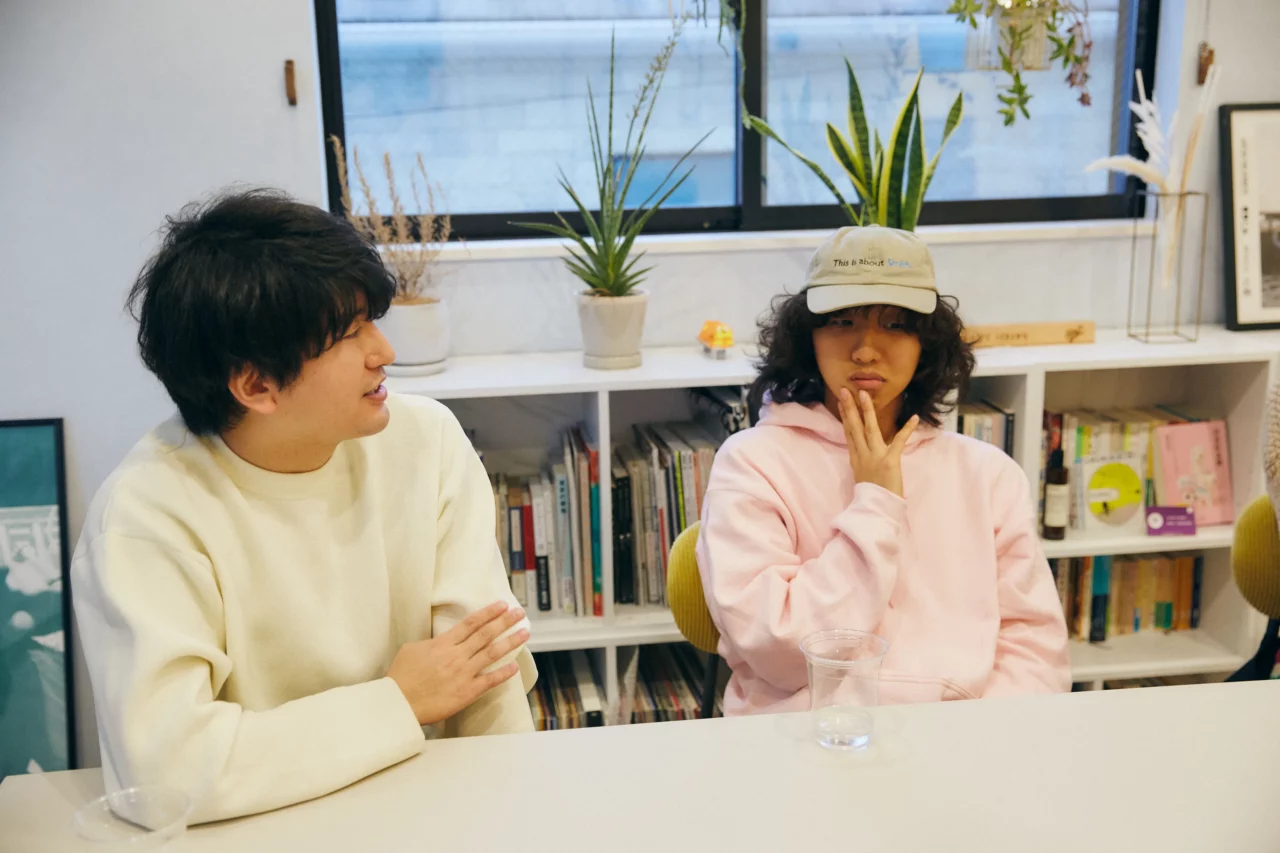
Isomoto: I feel like this is also a very Japanese way of thinking. It’s hard for us to simply say, “I think it’s good, so it is.” Instead, we’re always aware that “I feel this way, but others might see it differently.” We constantly exist within that kind of relational awareness.
Inoue, what are your thoughts after hearing what they just said?
Inoue: What came to mind was, “When did Jin-kun start really pursuing realism?” With our first album, ‘farewell your town,’ the theme was a fictional town, and from there, I think we tried to depict something real about ourselves.
Thinking back, I feel like it was around 2022, during ‘Awesome.ep’ or ‘Works.ep,’ that he started focusing more on capturing reality. If I remember correctly, that was also when he started using the word “tainen” (resigned acceptance) a lot more.
What do you think was going through your mind when you started using the word “teinen” (resigned acceptance)” around that time?
Suzuki: Hmm… 2022, huh.
Isomoto: That wasn’t exactly a smooth period for the band, was it?
Suzuki: Yeah, that’s true. On one hand, we were getting recognition, but in reality, it wasn’t necessarily translating into financial stability. And in terms of personal relationships, I also experienced moments where I thought, “So this is how connections with people come to an end.” It was a time filled with all sorts of realizations.
Inoue: That was also when you started reading a lot more, right?
Suzuki: Yeah. And the books I tend to read aren’t exactly happy endings [laughs]. Like Naoya Shiga’s ‘At Kinosaki’—that’s basically the definition of teinen. I think I just kept immersing myself in works with that “Even so, you have to keep living” kind of tone.
Isomoto: It’s not about giving up on everything, but rather, accepting that some things can’t be changed and, from there, searching for what you still love, what you still find beautiful, and what still gives you hope.
Inoue: Isn’t that just what being an adult is? Maybe you finally grew up.
Suzuki: You might be right about that.
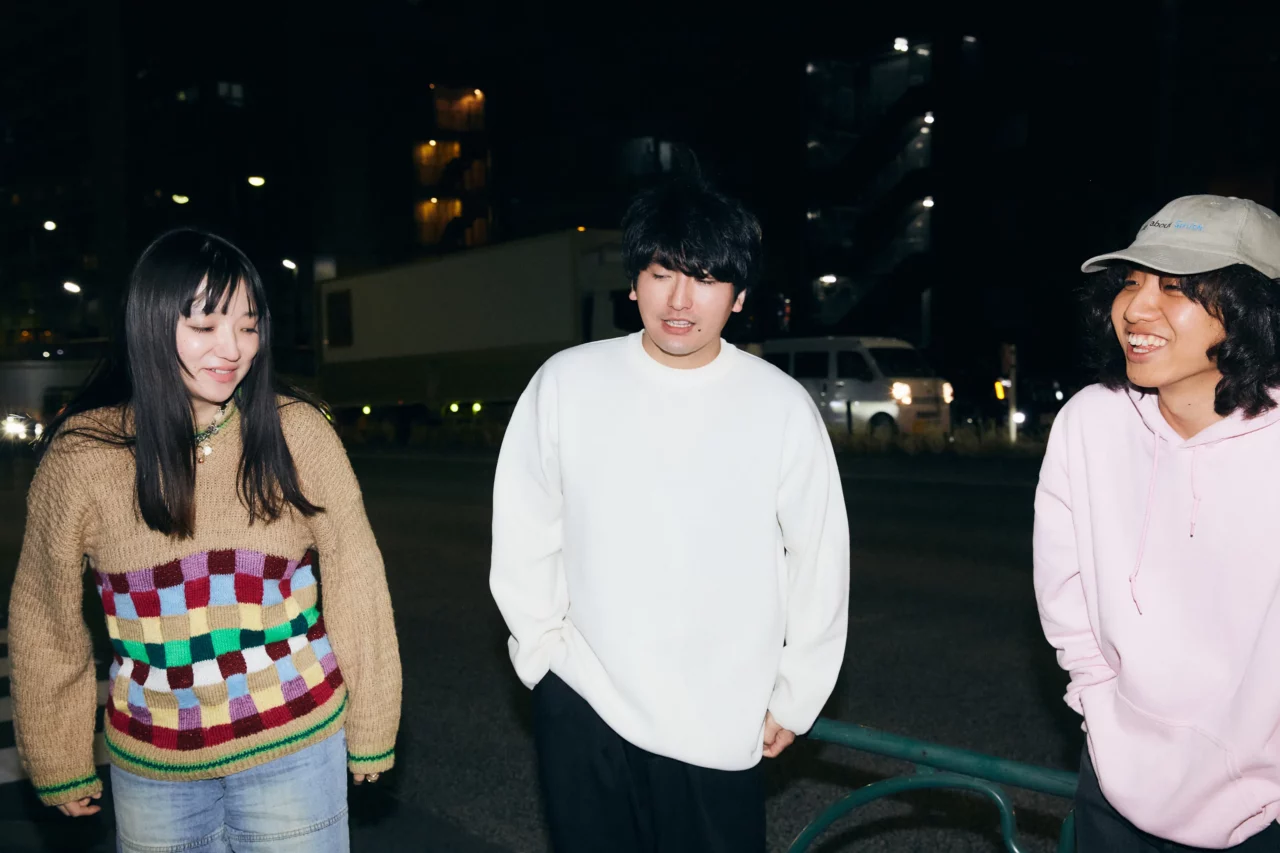
INDEX
Challenging the Ever-Growing Rationalization (Suzuki)
Given your recognition that reality is not just made up of beautiful things, creating and performing music seems to be an act that embodies your “second-layer positivity.” What do you seek in the process of making music, and what do you aim to convey through it?
Suzuki: Fundamentally, the things I aspire to create and admire are works that, without compromise, express emotions that I have felt but could never put into words. I believe that only when such emotions are fully expressed through a piece can they finally be named. When I’m writing a song, there are moments when I realize, “Oh, this is what I was feeling.” And when I receive reactions from listeners, it feels like those emotions have been shared—like we’re deeply connected on some level. I think that’s what I’m truly seeking.
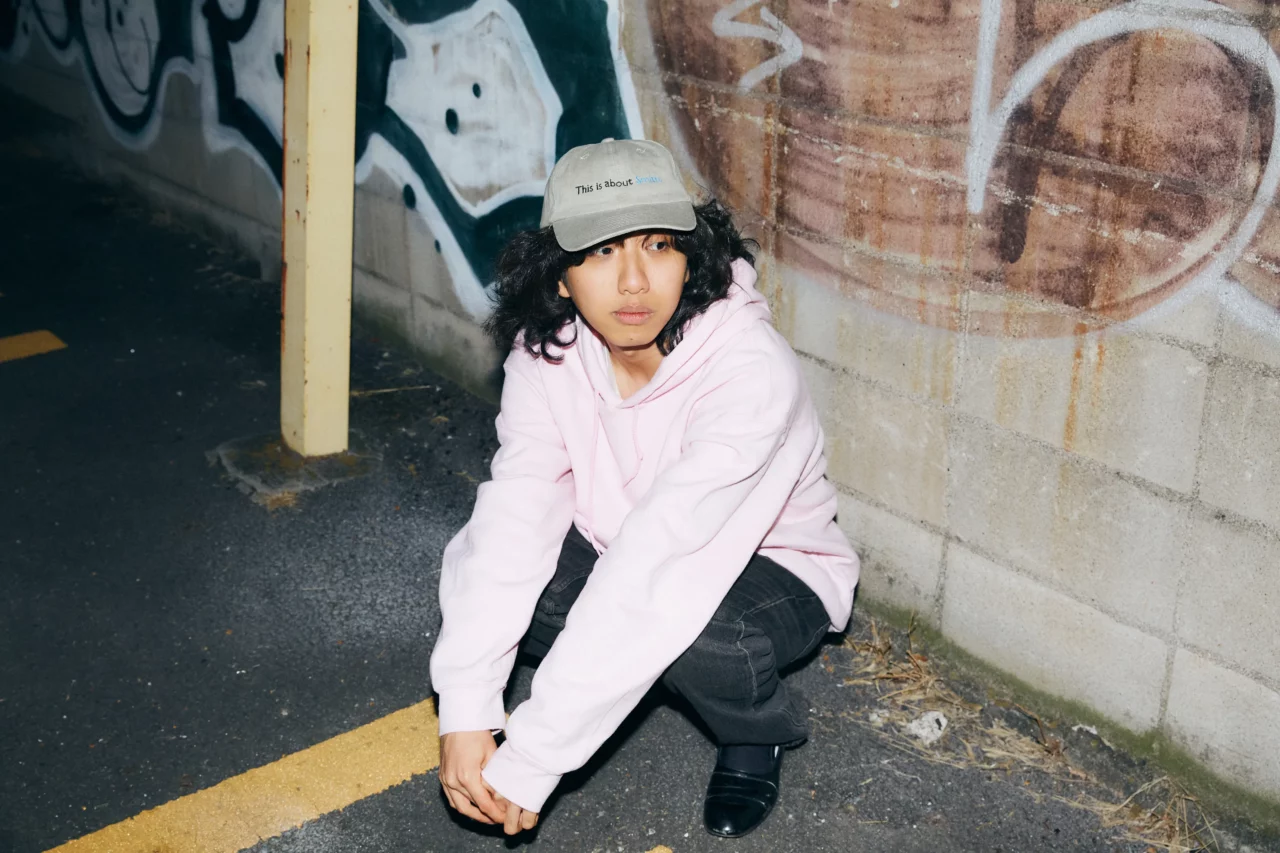
I’d like to ask you both the same question. Inoue, what are your thoughts?
Inoue: I often talk about this on the podcast I do with my friend Keayu (from BROTHER SUN SISTER MOON), but I feel like our generation lacks a real safety net—the sense that someone will definitely be there to help if something happens. When I think about that, I feel like as long as we can hold hands with those who truly understand us, we can avoid experiencing true loneliness. If my presence can serve as a catalyst for people to realize or reflect on what’s truly important in life, that would be meaningful to me. I think that might be the reason why I do music.
I see.
Inoue: Beyond that, I simply want to create amazing works. I’ve always had the desire to sing the kind of songs I personally want to hear. There are times when I feel like, This person’s voice just feels right, but with someone else, even if it’s a great song, I just can’t listen to it. But I believe Suzuki is someone who can create songs that overcome that barrier. Also, I want to elevate the standard of Japanese music. I know I’m saying something huge here, but… [laughs].
Suzuki: No, I totally agree with that.
Inoue: I’ve always felt that rather than spreading simple messages, sharing more complex ones can enrich people’s experiences even more. The bands that were popular when I was in middle school were seriously cool—like BUMP OF CHICKEN. I want to bring back that Wow, this is so cool! feeling from that era. My ambitions never run out! [laughs].
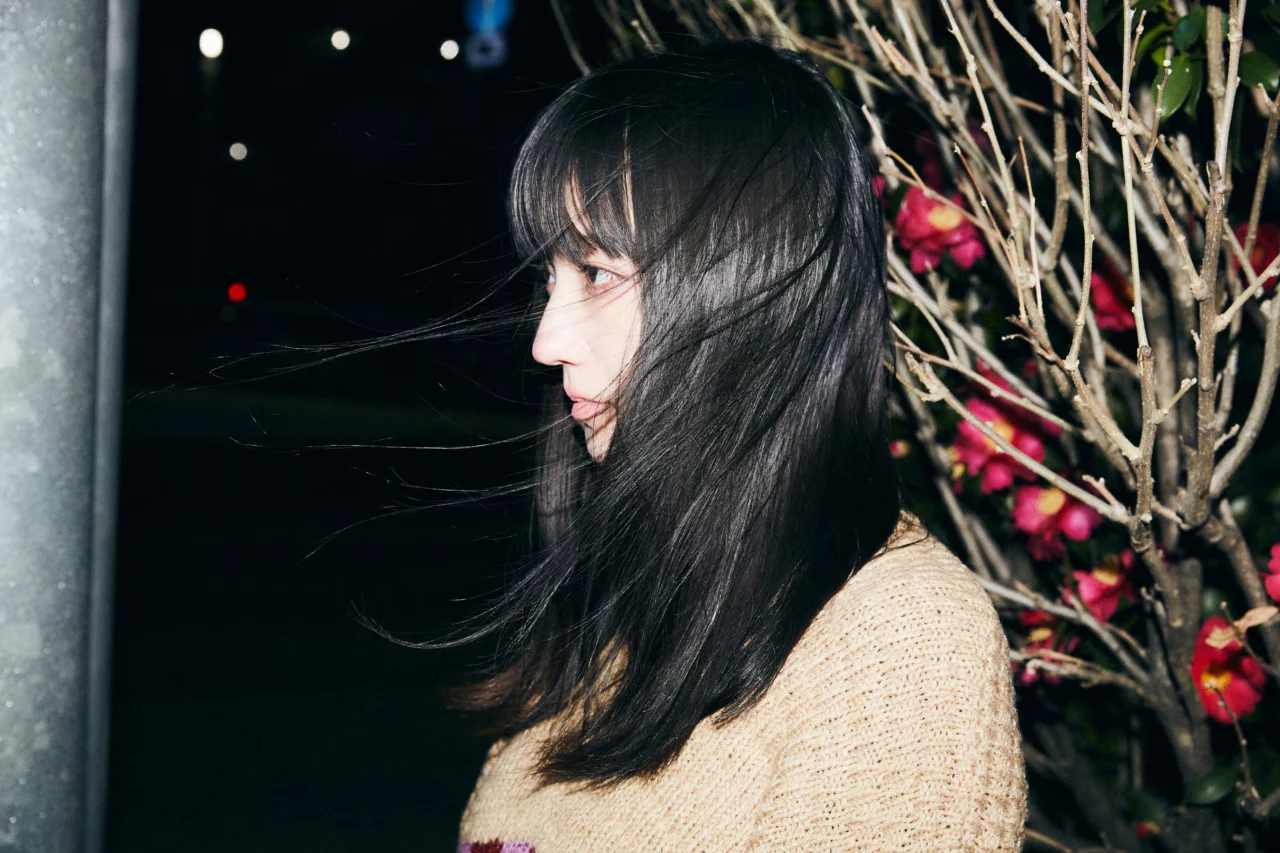
So, the first thing that felt truly cool to you was bands?
Inoue: Yeah, it was bands. Cool music meant bands, right?
Suzuki: Definitely. In terms of the times we live in, I don’t think there’s anything more cost-inefficient than being in a band right now (laughs). It costs money, and when strong-willed individuals come together, they inevitably clash. But I want to resist the idea that something should be discarded just because it’s costly or inefficient. That resistance is reflected in our work, and I think it’s also something we want to communicate through our existence as a band.
What do you seek in music, and what are you trying to achieve? Isomoto, how about you?
Isomoto: I think the music we create isn’t about presenting something entirely new, but rather helping people recognize things that were already inside them—things they hadn’t put into words yet. Finding beauty in someone else or discovering ugliness within yourself isn’t about encountering something new; it’s about becoming aware of something that was always there but unnoticed. I hope our music allows people to experience that realization.
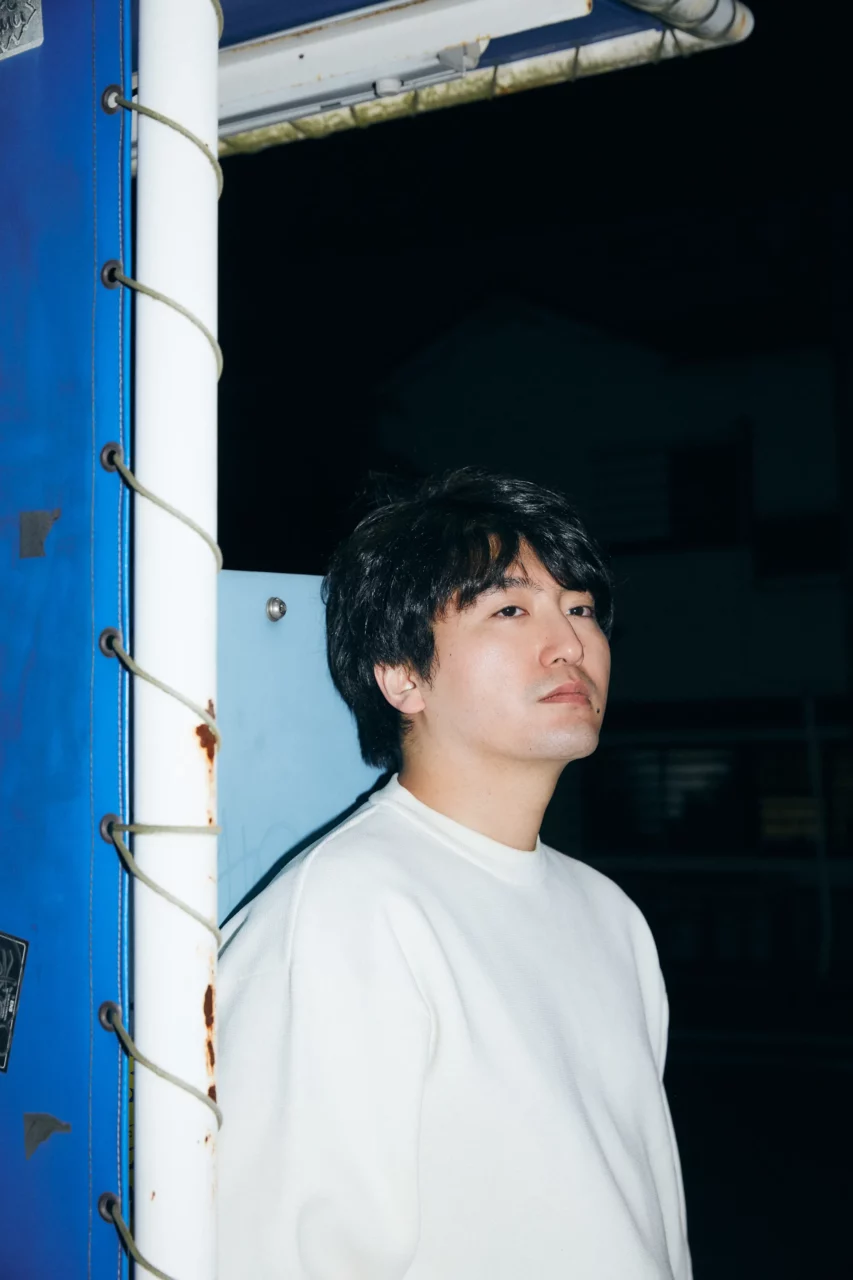
Isomoto: At the same time, I don’t want people to take what they realize and force it into familiar words. It’s completely fine to let things remain ambiguous as they are. The world today seems to push for clarity in everything, but I believe that true beauty often lies in the subtle and the undefined. So, we’re not trying to send a message like, “Listen to our music and become this kind of person.” But I do think that simply engaging deeply with complexity can bring something meaningful to one’s life moving forward.
Suzuki: That’s true. Just the existence of a work like this might be a source of comfort for someone. It’s something we arrived at naturally by giving our all, but looking back now, I feel like the very fact that ROLARS exists in this way holds significant meaning.




